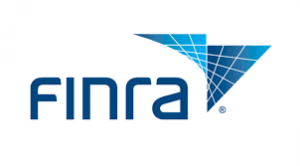
On April 21, 2020, California’s Court of Appeal, Fourth Appellate District created a significant carve-out to the absolute immunity standard previously applicable to Form U5 defamation claims in California. The full opinion in Tilkey v. Allstate Insurance Co., Super. Ct. No. 37-2016-00015545-CU-OE-CTL (2020) is available here. This case significantly changes the landscape for Form U5 defamation claim unless California’s highest court intervenes. As a result of Allstate’s defamation, the trial court awarded Tilkey $2,663,137 in compensatory damages and $15,978,822 in punitive damages.
Background
Before jumping in to the facts of the case, some background on Form U5 defamation claims might be helpful. Broker-dealers are required to file a Form U5 whenever an employee’s registration is terminated. The Form U5 requires the firm to provide a narrative explanation of the termination if the employee was discharged or permitted to resign. When it comes to the narrative explanation, professionals in the financial services industry frequently complain that employers “play games” by providing extraneous and gratuitous remarks or, worse yet, offering an entirely false explanation for the termination. The consequences flowing from negative Form U5 disclosure information are severe. In addition to reputational harm, FINRA will start a costly investigation and potential employers will shy away from a prospective employee with negative information on CRD.
The Tilkey Case
Tilkey was arrested in Arizona following an argument with his girlfriend. He was charged with criminal damage deface, possession or use of drug paraphernalia, and disorderly conduct. Domestic violence charges were attached to the criminal charge and disorderly conduct charges. Tilkey pled guilty to the disorderly conduct charge only, and the other two charges were dropped. Following completion of a domestic nonviolence diversion program, the disorderly conduct charge was dismissed.
The Form U5 Language at Issue
Before the disorderly conduct charge was dismissed, Allstate terminated his employment based on the arrest for a domestic violence offense and his participation in the diversion program. Allstate thereafter filed a Form U5 reporting the termination explanation as: “Termination of employment by parent property and casualty insurance company after allegations of engaging in threatening behaviors that are in violation of company policy, specifically, engaging in threatening behavior and/or acts of physical harm or violence to any person, regardless of whether he/she is employed by Allstate. Not securities related.”
Claims and Defenses Raised
Tilkey sued Allstate for compelled self-published defamation to prospective employers and Allstate defended by claiming Form U5 privilege. Allstate asserted that California Civil Code section 47 makes a communication absolutely privileged if made in an official proceeding authorized by law, and disclosures on a Form U5 that may form the basis of a FINRA investigation should be considered a communication made in anticipation of an action or other official proceeding. See Fontani v. Wells Fargo Investments, LLC, 129 Cal.App.4th 719,732 (2005) (holding that a Form U5 filing constitutes a communication before an official proceeding).
Carve out Established by the Tilkey Court
In analyzing the Form U5, the Court found that “FINRA does not ask for information about nonsecurities-related activities because that information falls outside its scope of regulation.” The Court then set an outer boundary to the absolute privilege standard by finding:
“the absolute privilege extends to communications required by FINRA, i.e., fraud- and securities-related information. However, the communication of Tilkey’s termination here did not regard improper securities-related conduct, and Allstate did not limit its responses to fraud- and securities-related information.”
The Court even went on to offer hypothetical Form U5 language that, had it been used by Allstate, may have received absolute immunity:
“Termination of employment by parent property and casualty insurance company after allegations of engaging behavior that are in violation of company policy. Not securities related.”
Takeaway
I firmly believe that Form U5 abuses exist in the securities industry and that firms should pay up when they improperly tarnish someone’s reputation. And I support the qualified immunity standard embraced by the majority of the states, which I believe balances the interests of the individual, the firm and the regulatory community. Even FINRA itself supported the qualified immunity standard in Notice to Members 97-77.
With all of that said, I respectfully believe that the Tilkey court got it wrong as it relates to the Form U5 analysis. I say this because guidance published by FINRA directly rebuts the Court’s findings. In 2010, FINRA published Regulatory Notice 10-39 (titled Form U5: Obligation to Provide Timely, Complete and Accurate Information on Form U5), in which FINRA stated that:
“[F]or purposes of Section 3 of Form U5, it is not sufficient for a firm to report only that a person’s registration was terminated because that person violated ‘firm policy.’ If a firm is obligated to report that a registered person was terminated because he or she violated a firm policy, the firm must identify the policy, [and] provide sufficient facts and circumstances to enable the reader to understand what conduct was involved …”
Second, I believe the Court is wrong when claiming that FINRAs interest in Form U5 disclosure is limited only to “fraud and securities-related conduct.” FINRA routinely prosecutes non-fraud and non-securities-related violations pursuant to FINRA Rule 2010, which is a rule specifically designed to enable FINRA to regulate ethical norms in the industry. And when completing a Form U5, FINRA specifically advised member firms to interpret the term “investment related” in an “expansive manner.” Regulatory Notice 10-39 at 2. “Accordingly, a firm may be required to provide an affirmative answer even if the matter is not securities-related.” Id. at 3 (emphasis added).
Given that the Court’s analysis cannot be squared with FINRAs guidance, I would expect Allstate to appeal to California’s highest court.
Herskovits PLLC has a nationwide practice representing parties in securities-industry disputes. Feel free to call us at 212-897-5410 for a consultation.
 FINRA Lawyer Blog
FINRA Lawyer Blog

